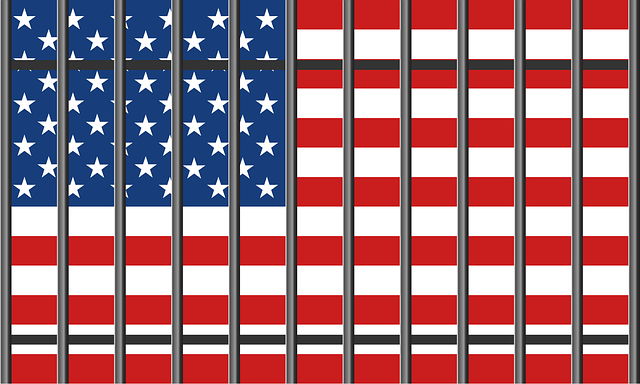Homeownership offers legal protection against drug interactions and DUI laws, safeguarding assets from forfeiture or property value decline. Understanding local laws is vital to mitigate risks associated with criminal charges, which can impact mortgage payments and financial stability due to legal fees and a potential criminal record. Diversifying investments and structuring assets through trusts can enhance protection for primary residences and alternative real estate holdings. Consulting legal experts specializing in Drug Interaction and DUI Law ensures strategic asset preservation while planning for future financial security.
“Home ownership, often considered a cornerstone of financial stability, can also serve as a powerful asset protection strategy. In an era where drug interactions and DUI laws are ever-evolving, understanding how these factors impact property rights is vital. This article navigates the intricate link between homeownership and legal protections, exploring strategies to safeguard your assets from drug-related charges and DUI consequences. From comprehending drug interaction laws to investigating alternative asset protection methods, we guide homeowners through a comprehensive plan to preserve their most valuable possession—their home.”
- Understanding Home Ownership as an Asset Protection Strategy
- Drug Interaction and DUI Law: Implications for Homeowners
- Legal Protections for Property Owners Facing Drug-Related Charges
- The Financial Impact of a DUI on Homeownership
- Alternative Asset Protection Methods for Homeowners
- Building a Comprehensive Plan to Protect Your Home and Assets
Understanding Home Ownership as an Asset Protection Strategy

Home ownership is often viewed as more than just a place to live; it’s a significant investment and an essential asset protection strategy. In today’s digital era, where Drug Interaction and DUI Law concerns are prevalent, having a physical asset like a home can provide a layer of security that goes beyond financial value. It serves as a concrete anchor, shielding individuals from the uncertainties of a rapidly changing legal landscape.
This is particularly relevant when considering the potential consequences of legal issues, such as DUI charges. Owning a home allows for greater control and privacy compared to renting. This can be crucial in navigating sensitive matters like drug interactions and associated legal challenges, offering a sense of stability and protection that extends beyond the confines of a legal system that may seem labyrinthine and complex.
Drug Interaction and DUI Law: Implications for Homeowners

For homeowners, understanding the interplay between drug interactions and DUI (Driving Under the Influence) laws is crucial to protecting their asset. Drug interaction refers to how different substances in one’s system can affect cognitive and physical abilities, potentially impairing judgment and coordination—qualities essential for safe driving. In many jurisdictions, blood or breath tests are used to determine intoxication levels, with legal thresholds varying by substance and location.
When it comes to home ownership, drug interactions can have significant implications. Homeowners found guilty of DUI may face severe penalties, including fines, license suspension, and even imprisonment. Moreover, a DUI conviction can impact property values and insurance premiums. Additionally, if an incident occurs on private property, homeowners may be held liable for damages or injuries caused by an impaired driver. Thus, being aware of drug interactions and the associated legal ramifications is vital to safeguarding one’s investment in real estate.
Legal Protections for Property Owners Facing Drug-Related Charges

When facing drug-related charges, whether it’s a simple possession offense or a more complex Drug Interaction and DUI Law scenario, property owners have legal protections in place to safeguard their home ownership rights. In many jurisdictions, the law provides a level of safety net for individuals accused of drug offenses, ensuring that their homes are not automatically at risk of forfeiture. This is particularly important as home ownership is often one of the largest investments an individual makes, and its protection can have significant financial implications.
The legal framework surrounding drug charges and property rights varies across regions, but generally, there must be a direct link between the criminal activity and the property in question for it to be at risk. This means that simply owning a home where drugs were used or found does not automatically lead to forfeiture. Property owners facing Drug Interaction and DUI Law cases should consult legal professionals who specialize in these areas to understand their rights, the potential consequences, and the best strategies for defense, especially if there are mitigating circumstances surrounding the drug use or possession.
The Financial Impact of a DUI on Homeownership

A Drug Interaction and DUI Law can significantly impact an individual’s ability to maintain homeownership. A DUI conviction often comes with substantial legal fees, fines, and potential license suspension or revocation. These financial burdens can strain personal finances, making it challenging to meet mortgage obligations. Moreover, a criminal record associated with a DUI may affect the ability to secure a mortgage in the future, as lenders typically conduct thorough background checks.
Additionally, the loss of driving privileges can limit mobility, hindering individuals from reaching their places of employment or conducting daily errands, which further exacerbates financial strain. Homeownership requires stability and consistent income, and a DUI can disrupt this equilibrium, creating a complex situation for homeowners facing legal repercussions and financial difficulties.
Alternative Asset Protection Methods for Homeowners

Many homeowners rely on their property as a primary means of asset protection, but there are alternative strategies to consider, especially in instances where traditional methods might be limited. For individuals facing legal issues like Drug Interaction or DUI charges, protecting assets can be particularly challenging. In such cases, diversifying investment portfolios and utilizing specialized financial vehicles can offer a more robust shield.
One approach is to explore alternative investments that are less susceptible to seizure or attachment by creditors. This could include venture capital, private equity, or real estate outside of one’s primary residence. Additionally, structuring assets through legal entities like trusts can provide an extra layer of protection. It’s crucial to consult with legal and financial experts who understand the complexities of Drug Interaction and DUI laws to navigate these options effectively while preserving asset integrity.
Building a Comprehensive Plan to Protect Your Home and Assets

Protecting your home and assets is a strategic process that requires a comprehensive plan. This involves understanding potential risks, such as those posed by legal issues like Drug Interaction and DUI Law, which can significantly impact property ownership. A solid strategy starts with staying informed about local laws and regulations related to property rights, especially in the context of legal complications.
Regularly reviewing and updating your estate planning documents is crucial. This includes wills, trusts, and powers of attorney. Engaging the services of a legal professional who specializes in real estate and asset protection law can help ensure that your home and assets are safeguarded effectively, providing peace of mind and financial security for the future.
Home ownership, while a significant investment, can also serve as a powerful asset protection strategy. Understanding how drug interactions and DUI laws impact homeowners is crucial for navigating potential legal pitfalls. With the right knowledge and legal protections in place, individuals can safeguard their properties from the financial consequences of a DUI and ensure their assets remain secure. Exploring alternative asset protection methods further enhances this safeguard, enabling homeowners to build a comprehensive plan tailored to their unique circumstances.






